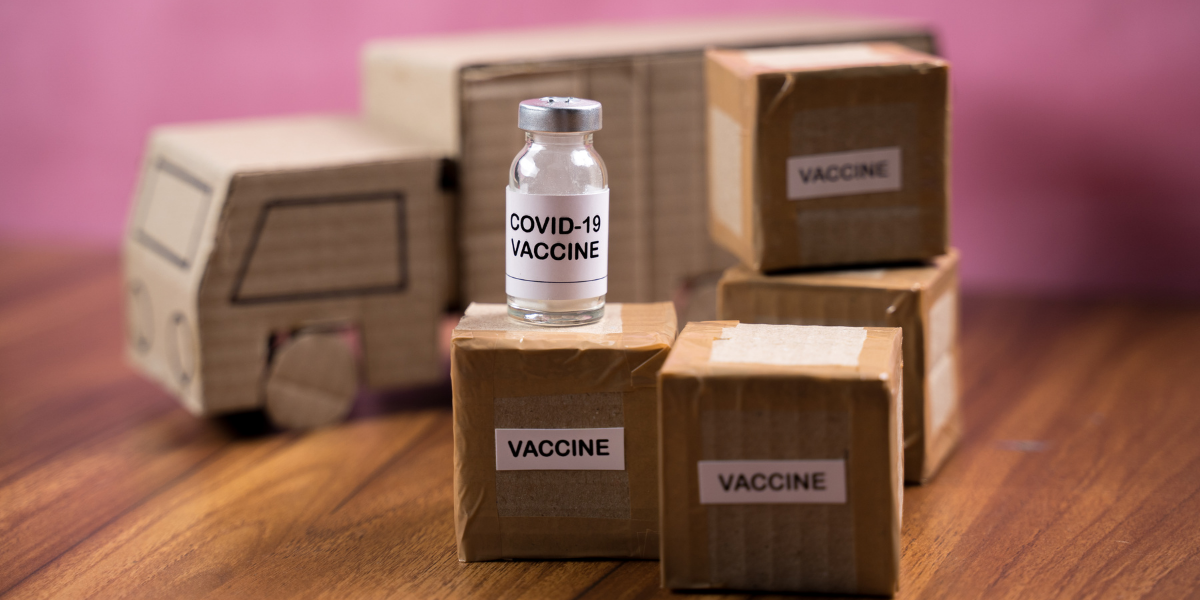The logistics challenge posed by the COVID-19 vaccination campaigns is unprecedented in terms of its scale, the unknowns it involves, and its highly sensitive nature. Despite this complexity, transport and logistics professionals have stepped up and proven they can handle the operation. In this article, Zoe McLernon, Policy Manager of Multi Modal at Logistics UK, looks back at the obstacles the industry was able to overcome and the difficulties that still lie ahead in the vaccine rollout.

With 443 million people across the world now vaccinated fully against COVID-19, the distribution of these lifesaving vaccines has been a monumental success story for the logistics sector – an industry that has shown its resilience, agility and strength throughout the pandemic. The logistics industry is one of the most important assets in the world’s fight against the COVID-19 pandemic but has had to overcome vast obstacles to deliver these vaccine doses safely and swiftly. And with only 5.7% of the world’s population having received their second dose, many challenges still lie ahead as the vaccine rollout programme continues around the globe.
In this article, I will look back at the challenges the industry had to overcome to reach this point in the vaccination programme – covering the requirements for storage, security, personnel, and capacity – and explore the obstacles that lie on the road ahead as we seek to vaccinate the global population.
Safeguarding against criminal activity
In December 2020, the International Criminal Police Organisation (INTERPOL) issued a warning to its member countries advising law enforcement organisations that criminal groups are targeting COVID-19 vaccine shipments. With some individual shipments valued as high as $70 million – and a single dose selling for around $200 on the dark web, according to Bloomberg sources – logistics businesses had to move quickly to train staff in the complex security, handling and monitoring requirements involved in medical transportation. Shipment security had to be watertight, with all systems able to cope with the requirements of transporting such a high volume of valuable commodities. Training of staff is key in the process. All those within the supply chain – from manufacturers, HGV drivers, scientists to nurses – were required from the start of the rollout programme to be confident in their ability to keep the vaccines, and themselves, safe against criminal activity.


The logistics sector plays an instrumental role in the ongoing success of the rollout programme; whatever challenges lie ahead; it is always ready to adapt quickly to continue delivering for the global population.
Multimodal Policy Manager at Logistics UK
The complexities inherent to transporting temperature-sensitive products
Those handling such important shipments needed to be trained to understand the handling and monitoring requirements; individuals involved in the distribution of the vaccines needed to understand the complexities of transporting each different type of vaccine and cater in accordance. For example, the Oxford-AstraZeneca vaccine must be stored at ‘fridge temperature’ (2-8°C), whereas the Pfizer vaccine must be stored at around -70°C for it to be effective – making it much more challenging to transport. The vaccines must be stored effectively in temperature-controlled facilities when not in transit – facilities which needed to be constructed to cope with both the huge volumes and unique storage requirements. For some vaccines being stored at very low temperatures, it is important that those handling goods are trained in the movement of dangerous goods, with dry ice a key component of some shipments. Many airline operators have sought innovative solutions for the transportation of vaccines by air, maintaining and monitoring temperatures at all stages of transport. For example, temperature controlled, reusable packaging and the use of specialised aprons and dollies to protect against weather while shipments are being moved from a plane and across tarmac to storage.
The specific challenge faced by the air cargo industry
As logistics businesses continue the global vaccination rollout programme, the restrictions placed on passenger travel following the COVID-19 outbreak pose a constant challenge to the ability of the air cargo industry to operate effectively with reduced capacity and will continue to do so until passenger flight levels return closer to normality. Air freight capacity is still significantly below 2019 levels, with many airlines predicting lower passenger traffic until 2023 or 2024. Until passenger flight levels resume, a continued expansion in available slots for dedicated freight flights would help to bridge the trade gap. As borders reopen, at Logistics UK, we are calling for widescale rapid COVID-19 testing to be introduced at airports to support a growth in passenger numbers which, in turn, will boost capacity for air cargo.
Businesses need ongoing support from the government to ensure that the mass transportation of the vaccines continues effectively. Priority must be given to cargo shipments, with ample slot flexibility and fleet availability. In the UK, any border arrangements with EU neighbouring states and other countries must prioritise the movement of vaccines to prevent delays.
Building in resilience and adaptability
Innovation is vital to cope with the complexity of moving important goods, and operators should continue to consider new solutions to handle and store vaccines, such as digital platforms to monitor the supply chain, including real-time data on temperature and location. The logistics industry remains well equipped to deal with any challenges but ensuring resilience in the supply chain is vital. For example, over the past year, we’ve seen countries close borders owing to COVID-19 outbreaks and the sector needed to be ready to adapt to any sudden changes.
The logistics sector plays an instrumental role in the ongoing success of the rollout programme; whatever challenges lie ahead; it is always ready to adapt quickly to continue delivering for the global population.
Disclaimer: this article was written by an external expert contributor to CEVA Insights. The perspectives and ideas are the contributor's and do not necessarily reflect the views of CEVA Logistics.
